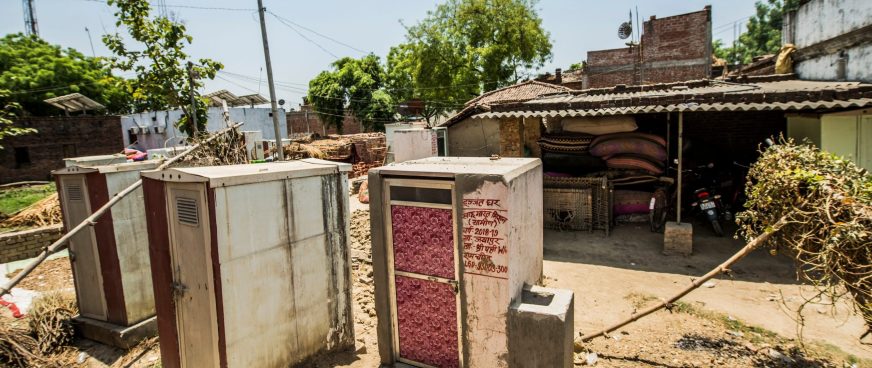- SIWI – Leading expert in water governance
- /
- Latest
- /
- Human rights to water and sanitation need protection and investment
Human rights to water and sanitation need protection and investment
The UN Human Rights Day on 10 December also marks ten years since the rights to clean water and sanitation was enshrined as a human right. How far have we come since then? And has the COVID-19 pandemic put us back to square one?

What was the importance of making water and sanitation a human right?
The recognition of the human rights to water and sanitation has moved the debate from the discussion of whether water and sanitation should be rights, to the implementation of those rights. So no-one is debating/discussing whether everyone everywhere is entitled to enjoy water and sanitation services.
This has translated into progress on a national and international level. For example, the Sustainable Development Goals agenda has a clear focus on universality: Leaving No One Behind. Many aspects of the human rights have been included in the formulation of the SDG6 targets and indicators, but there is room for improvement and inclusion of all aspects. Countries have started to adopt the right in national legislations, and international agents, NGOs, and service providers have started to adopt it.
How has the Covid-19 pandemic impacted this human right?
The Covid-19 pandemic has exposed gaps in existing water and sanitation services. For example, when people were forced to stay at home, special measures needed to be put in place to deliver water and offer sanitation solutions to those who did not have them through delivery of water through trucks, creation of handwashing points, etc.
Covid-19 has shown us that the only acceptable solution for the future is to have adequate services for everyone both at home and at key locations, such as health centres, schools, markets, etc. But the path to achieving that reality is still long.
The water, sanitation and hygiene sector has demonstrated again that it is an essential service. If we want to continue the fight against Covid-19 the water, sanitation and hygiene sector will need more political attention and sustained long term funding.
How do we keep making progress?
A crucial aspect is to really keep an eye on three components simultaneously: infrastructure, governance and behaviour. New infrastructure will only work if adequately managed, and meets the needs of the users.
Long-term and sustained political support, backed with investments, will be key. Water should be a matter of national priority, such as health or education, regardless of the nature of political parties running a country.
Water and sanitation is a wise investment for the long-term economic growth of a country. There is sufficient evidence proving that investments in water and sanitation pay for themselves four times over (WHO). But no country has achieved this prosperity over a few years – it requires decades of sustained effort.
We need to look at any new investments through the perspective of climate adaptation, and mitigation. Whereby safe and sustainable water and sanitation services offer tremendous potential benefits, which need to be further tapped into.
Finally, all of this should be carried out with a constant effort towards leaving no one behind, as the human rights remind us.
Most recent

TIARA in Zambia: Scaling resilient rainfed agriculture in the Zambezi Basin
- Agriculture and water
- Freshwater and ecosystems/biodiversity
- Resilience through water
- Water in landscapes
- Water and climate

Why climate action must integrate water
- Water and climate
- World Water Week
- Water governance

Swedish Water House Trendspotting 2026
- Swedish Water House

SIWI Reflections 2025: When Indigenous voices shape global water dialogue
- World Water Week
- Indigenous knowledge

SIWI-WASH experts join IVL

SIWI Amman hosts Ghana representatives for WASH exposure visit in Jordan

Join us on a journey through 2023

